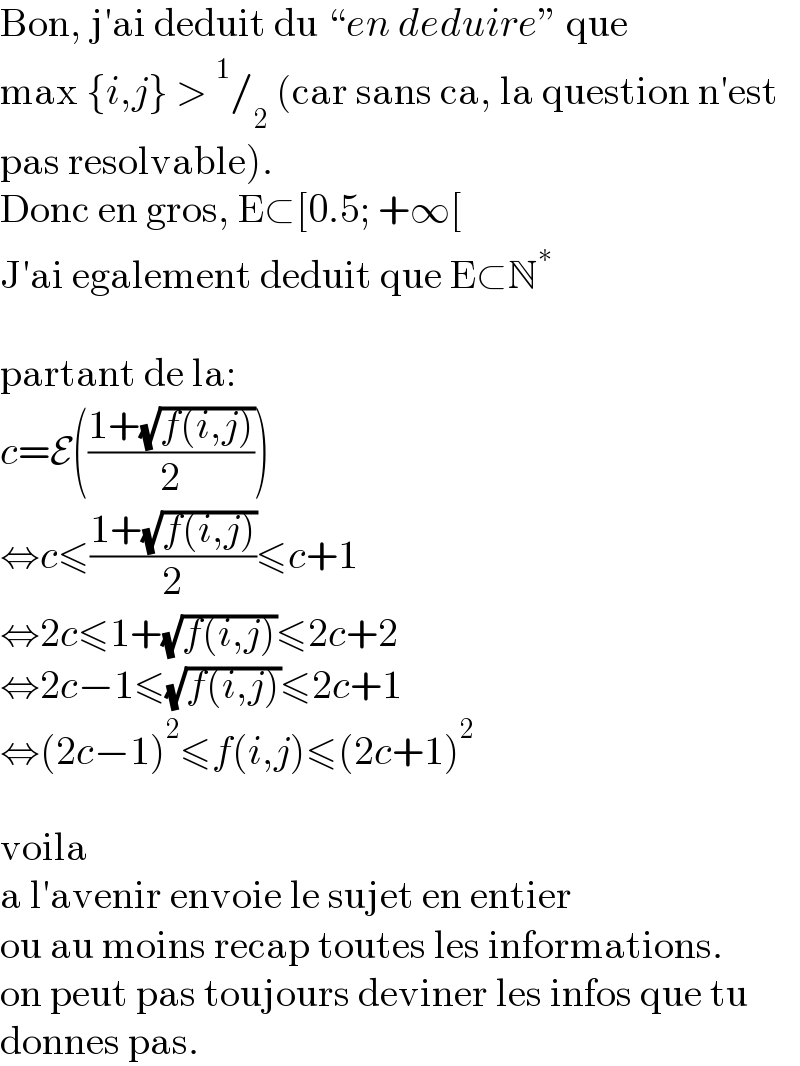
Question and Answers Forum
Question Number 177476 by Skabetix last updated on 05/Oct/22

Commented by Slomenist1 last updated on 05/Oct/22

Commented by Skabetix last updated on 06/Oct/22

Commented by Skabetix last updated on 06/Oct/22

Commented by TheHoneyCat last updated on 08/Oct/22
L'inégalité se prouve comme pour tes questions 2 et 3. Je peux pas te donner le détail, vu que, bah, non, le sujet est pas donné en entier. E₁ E₂ E₃ et E₄ ne sont pas définis. Mais vu la tronche des questions, la preuve doit être identique.
Answered by TheHoneyCat last updated on 08/Oct/22

